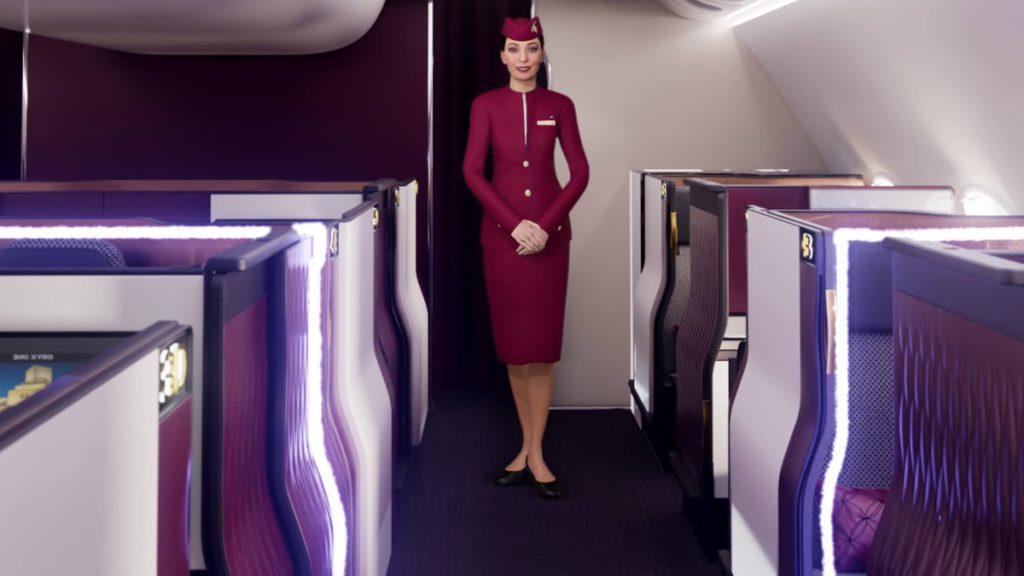The Metaverse needs to be a long-term play for airlines
Share
Recently Meta boss Mark Zuckerberg was on the receiving end of both a lot of criticism and hilarity in the business and technology press in response to a picture that he released of his avatar in the “Metaverse.”

Fast Company called it a “demonic VR porcelain doll…that looked worse than a Second Life avatar from 2003”, while Forbes questioned, “does Mark Zuckerberg not understand how bad his Metaverse looks?”
The Metaverse is of course a topic that’s being discussed in a lot of airline and airport marketing departments, in particular many executives want to see how it can be used to showcase new products such as lounges, cabins or even to provide virtual tours of new destinations.
So is it a Mark Zuckerberg fail, complete with clunky graphics and features people don’t actually want, or should the airline industry be betting on this?
The short answer is airlines should be looking at it, but as a long-term play. Airlines should use the next few years to experiment, without expecting the kind of ROI you see from standard campaigns.
This is how Zuckerberg sees it, which puts the cartoon selfie he released into perspective. It’s very much still work in progress, and Zuckerberg himself later released a new selfie with a comment that the graphics will be very different as they are now.
The tech giant’s CEO has also told investors that the company’s Metaverse ventures, which ate up $10 billion in 2021, won’t be profitable for at least three to five years, and that some projects won’t come to fruition for another ten.
At the same time, Gartner has predicted that 25% of people will be spending at least an hour a day in the Metaverse by 2026, so in four years from now.
Some airlines and airports have already been dipping their toes into the Metaverse.

In April, Qatar Airways launched its “QVerse” featuring Sama, the first so-called Metahuman flight attendant.
The idea is you can virtually check into a flight and look around an aircraft cabin.
Meanwhile Vueling is working with Next Earth, a Metaverse platform which allows users to buy and sell virtual land mapped on earth. Next Earth wants to create “the world’s first mobility marketplace network and token”, which also appears to have some kind of sustainability play.
According to the press release from Next Earth:
“The strategic alliance, which also includes Vueling Airlines, will collaborate in the development of tools and services enabling “Next Earthians” to plan real-Earth journeys, track carbon emissions and book “carbon positive” transportation via the Metaverse and Iomob’s companion app.”
There are not any more details of how this partnership will work, but our guess is that Next Earth users will be able to book travel tickets, with Vueling being the first partner, and to have some kind of mechanism where they are shown their carbon footprint, with a carbon offset option.
Then in April, Istanbul Grand Airport worked with the kid-centred platform of Roblox, around World Autism Awareness Day.
Workshops were hosted for children with autism. They were asked to paint pictures, which were then used in an exhibition at the airport.
Another part of the programme was to turn artworks into NFTs, with the money raised used in support of Turkish Autism foundations.
Finally, İGA worked with Turkish ad network Tooplay and Anzu to bring the artworks into Roblox itself.
So what should airlines that are thinking about entering the Metaverse do? The IGA venture with Roblox gives a good clue, Roblox is a huge platform with 202 million active users last year – most of them kids.
IGA looked at how the campaign could be amplified both on and offline (via an exhibition), created NFTs and thought about how kids could have their artwork shown off in the virtual world where they and many of their friends hang out.
The need to work with the existing community really is key.
Vueling’s collaboration with Next Earth might result in a new way for the airline to sell tickets, but the venture seems very much to be driven by Next Earth itself. That seems right – the existing community on each platform will be able to say what they find interesting and relevant.
Finally, Qatar Airways did what we’ll see a lot more of, the creation of a virtual space to show off the on-board experience. Having a “Metahuman” flight attendant was something new, and it generated positive news coverage. Our assumption is that this is something that Qatar Airways will be building on over the next few years.


